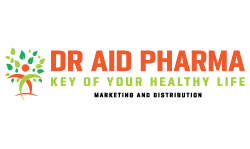Products
Products
Overview
Nutraceuticals are products derived from food sources with extra health benefits in addition to the basic nutritional value found in foods. These products are typically available in various forms such as dietary supplements, fortified foods, beverages, and functional foods.
Types of Nutraceuticals:
- Dietary Supplements: These include vitamins, minerals, amino acids, enzymes, and botanicals taken orally to supplement the diet.
- Functional Foods: Foods fortified with additional nutrients or bioactive compounds to provide health benefits beyond basic nutrition. Examples include fortified dairy products, cereals, and beverages.
- Herbal Products: Nutraceutical products derived from herbs and plants, often used for their medicinal properties.
- Probiotics and Prebiotics: Products containing live microorganisms (probiotics) or non-digestible food ingredients (prebiotics) that promote gut health.
- Omega-3 Fatty Acids: Nutraceuticals derived from fish oil or plant sources, known for their cardiovascular and cognitive health benefits.

For Patients
Nutraceutical products offer a range of potential health benefits for patients seeking natural and complementary approaches to support their well-being. Here’s how these products can benefit patients
Supplementation of Essential Nutrients:
- Nutraceutical products often contain vitamins, minerals, and other essential nutrients that may be lacking in a patient’s diet. For individuals with specific nutritional deficiencies or dietary restrictions, supplementation can help meet their daily requirements and support overall health.
- Support for Specific Health Conditions: Certain nutraceutical ingredients have been studied for their potential therapeutic effects on various health conditions.
- Some nutraceuticals, such as turmeric or ginger extract, have anti-inflammatory properties that may help alleviate pain and discomfort associated with conditions like arthritis or muscle soreness. These natural alternatives can be particularly beneficial for patients looking to reduce their reliance on conventional pain medications.
- Nutraceuticals containing immune-boosting ingredients like vitamin C, zinc, and echinacea may help strengthen the immune system and reduce the risk of infections, particularly during cold and flu season or in times of increased stress.

For Doctors
Nutraceutical products can offer a complementary approach to conventional medical treatments, providing additional options for doctors to support their patients’ health and well-being. Here’s how nutraceuticals can be beneficial for doctors
Nutraceuticals can be prescribed to patients who have specific nutritional deficiencies, helping to address gaps in their diet and support optimal health. For example, vitamin D supplementation may be recommended for individuals with low blood levels of vitamin D, particularly in regions with limited sunlight exposure.
- Nutraceuticals can complement conventional medical treatments as adjunctive therapy for various health conditions. For example, omega-3 fatty acids may be prescribed alongside statin medications to help reduce triglyceride levels in patients with hyperlipidemia.
- Nutraceuticals containing bioactive compounds such as plant sterols, soluble fiber, and antioxidants may help manage chronic conditions like diabetes, hypertension, and cardiovascular disease. These products can be integrated into a comprehensive treatment plan to optimize patient outcomes and reduce the risk of complications.
- Nutraceuticals can play a role in preventive healthcare by addressing risk factors associated with chronic diseases and promoting overall wellness. For example, prescribing probiotics to patients taking antibiotics can help prevent antibiotic-associated diarrhea and maintain gut health.

For Nurses
Nurses can educate patients about the role of nutrition in health and introduce nutraceutical products as supplements to support overall wellness. This includes explaining the benefits of specific nutrients and how they can contribute to disease prevention and management.
Nurses can assess patients’ nutritional status and screen for deficiencies or risk factors that may benefit from supplementation with nutraceuticals. This can involve conducting dietary assessments, reviewing medical histories, and identifying symptoms suggestive of nutritional imbalances.
- Nurses are often responsible for administering medications and supplements to patients. They can oversee the administration of nutraceutical products, ensuring proper dosage, timing, and adherence to treatment regimens. Nurses can also monitor patients for any adverse reactions or side effects associated with nutraceutical use.
- Nurses can work collaboratively with other healthcare providers to integrate nutraceuticals into patient care plans. This may involve consulting with dietitians, pharmacists, and physicians to develop individualized treatment strategies that incorporate both conventional treatments and nutraceutical interventions.
- Nutraceuticals can complement conventional medical treatments by addressing underlying nutritional deficiencies and promoting holistic approaches to health and wellness. Nurses can advocate for the inclusion of nutraceuticals in comprehensive care plans that address patients' physical, emotional, and nutritional needs.
